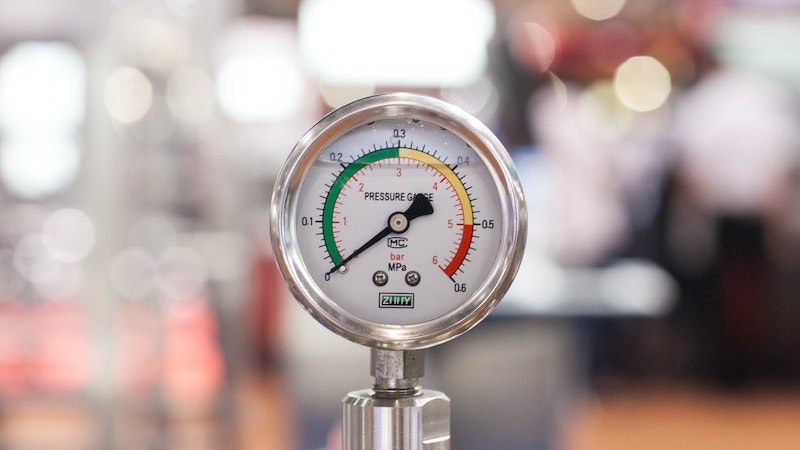What isn’t expressed gets compressed
- 12 January 2021
- Posted by: Michael H Hallett
- Category: Emotional principles , News ,

We’re all familiar with Isaac Newton’s Third Law of Motion, otherwise known as the Law of Action and Reaction: every action creates an equal and opposite reaction. This law applies to emotional mechanics just as much as planetary physics. What isn’t so well recognised is what happens when motion is inhibited: what isn’t expressed gets compressed.
The existence of this law has been highlighted by two recent events: the third lockdown here in Britain, and the Capitol riot in Washington, DC, on the night of 6 January 2021 that interrupted the certification of Joe Biden’s election victory.
The question is, what happens next for America’s disaffected right-wingers? What isn’t expressed gets compressed.
We could call this law the Law of Expression and Compression.
Expressed and compressed
Let’s start by defining these two terms, expressed and compressed.
The Collins English Dictionary defines ‘expression’ as “the expression of ideas or feelings is the showing of them through words, actions, or artistic activities.” The word derives from the Latin expressionem, ‘to press out’.
The Cambridge Dictionary defines ‘compression’ as “the act of pressing something into a smaller space or putting pressure on it from different sides until it gets smaller.” It, too, comes from Latin, compressionem, ‘to press together’—i.e., ‘to press in’.
In emotional terms, being able to express ourselves through words, actions, physical movement and art is essential to our wellbeing. When we are stifled—verbally, emotionally, physically or sexually—we become cooped up, sullen, and resentful. Instead of being a free-flowing stream, our emotions stagnate and fester. What isn’t expressed gets compressed.
There are two sources of compression: internal and external, repression and suppression.
As I write in A brief history of shame, in patriarchal societies repressing anti-social forms of self-expression is the tacit trade-off for belonging to a community. Feelings compressed in order to comply with this unconscious covenant often surface in cyclical, shame-based issues such as self-harm, eating disorders, and various forms of addiction.
Lockdown
Britain’s third lockdown highlighted issues of people struggling with the need to ‘toe the line’. One outcome was that two women in Derbyshire were fined for going for a walk 5 miles from their homes, while the Prime Minister, Boris Johnson, went for a 7-mile cycle ride. Johnson failed to repress his own desire for expression in the face of laws (compression) enacted by his own government.
Our ability to express ourselves can be suppressed by a variety of external sources such as lockdown, imprisonment, and clampdowns on free speech.
Whether this speech is pro-democracy protests in Hong Kong or hate speech from the American right is, in terms of emotional laws, immaterial. The censored person experiences a sense of compression, of being squeezed into a smaller and more restricted space.
There, the desire for expression builds in the same way that a piston approaching top-dead-centre compresses fuel in the combustion chamber of an engine until a spark ignites it.
Capitol riot
Such a spark flashed on the night of 6 January, when a mop of right-wing protesters stormed the U.S. Capitol in what has been variously described as an insurrection, a coup attempt and a riot.
The Law of Expression and Compression cast light on this muddled definition.
Weapons found near the Capitol show that some of the protesters had violent intentions. Yet, for most of them, breaking into the Capitol seems to have been a moment of emotional release for frustrated aspirations brought to a head by Biden’s election victory.
It was a lightning rod moment where the compressed feelings of Donald Trump’s fan base erupted into the open and were expressed in a rampage in which five people died. I’m not saying this to support or condone their actions; just pointing out that they occurred in accordance with an emotional law every bit as unyielding as Newton’s Law of Action and Reaction.
Parler
Following the Capitol debacle, networks moved quickly to shut down hate speech-tolerant platforms such as Parler. Here we see the Law of Action and Reaction at work. In emotional mechanics this law is intertwined with the Law of Expression and Compression.
The question is, what happens next for America’s disaffected right-wingers? What isn’t expressed gets compressed.
Alex Newhouse, from the Centre on Terrorism, Extremism, and Counterterrorism at the Middlebury Institute of International Studies, Vermont, noted this shift within days of the Capitol rampage. “There are already some signs that [violent] accelerationist groups are trying to peel off militant Trumpers.”
You, too, are being compressed
Whether shutting down hate speech platforms creates a wave of MAGA terrorism remains to be seen. In the meantime, the thing to remember is that it’s not just prime ministers and presidents. You, too, are being compressed.
Whether it’s fear of Coronavirus; the physical, emotional or economic impacts of lockdown; climate change; politics; or just our personal situations, we’re all feeling compressed at this time of accelerated and unpredictable global change.
Whatever the outside forces, the answer lies within. Breathe. Slow down. Centre. Study the emotional principles that we’re all subject to. If you don’t consciously work with them, they will unconsciously work against you. The more you express, the less you’ll be compressed.
Photo by Crystal Kwok on Unsplash
